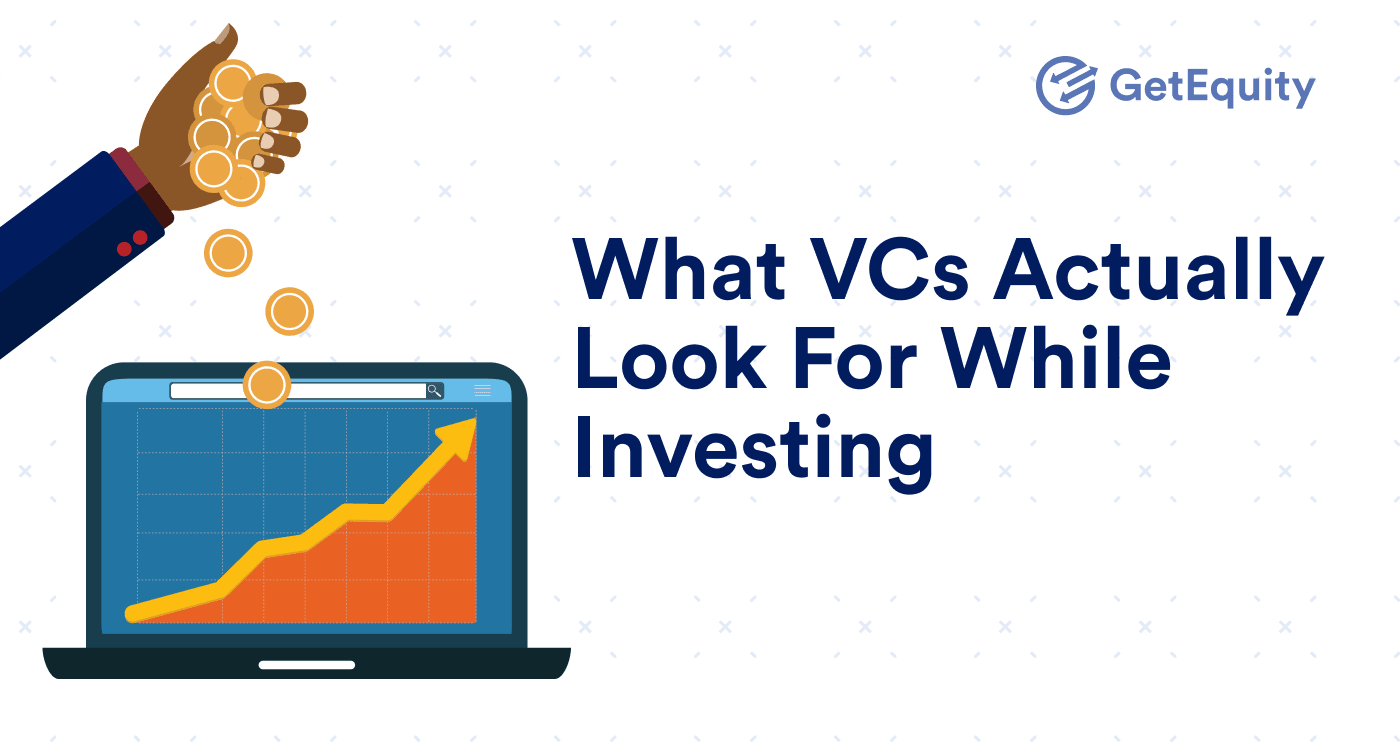Founder Education
— Mar 24, 2022
What VCs Actually Look For While Investing
Every high-growth startup needs funding somewhere along the way on their journey to deliver value on the market at scale. Now, it is a wrong concept for most inexperienced or first time founders to think that their companies need venture capital to start rolling out products whereas companies instead need venture capital to scale the […]

Every high-growth startup needs funding somewhere along the way on their journey to deliver value on the market at scale. Now, it is a wrong concept for most inexperienced or first time founders to think that their companies need venture capital to start rolling out products whereas companies instead need venture capital to scale the product and the innovation they already have traction for.
When your startup is ready to receive venture capital, investors need to see certain information and data to assure them of a good deal. The number one reason startups fail is the inability to raise funds. Matter of fact, 38% of failed startups did so because they ran out of cash or failed to raise capital. So below, are the main things venture capitalists want to see so they can give you their money and also so your startup does not die.
Is your solution needed on the market?
Almost all startups any VC will invest in have to have a product, either a service or a tangible good that they are selling on the market for a profit. Sounds good so far? Now, for your product to be successful, it has to be addressing a certain meaningful pain point on the market for the VCs to give you their money.
VCs are betting on your product to scale and find fit on the market so they can later cash out big. So it is usually easier if your product is an improvement of another existing solution or a totally new innovation creating a faster, cheaper, more effective way to solve a certain widespread problem on the market.
What kind of money is the company making and how much?
Your startup needs to make money in a clear manner so the VCs would understand if the company’s solution is profitable enough and how it will scale because that is the main checkpoint the VCs want to see.
For example, consistent revenue where customers pay a recurring price for a good or service such as daily, monthly or annually is more attractive to investors than a one-off payment that is hard to predict when the buyer is purchasing again.
Getting your unit economics is vital as well. The VCs want to see how much it costs to acquire a new customer, average lifetime for the customer, their lifetime value, and also per-unit profit margins. VCs want to see how your company plans on decreasing operational costs as it increases operational profits. Why? The investors want to see if they have a big payday as they exit so they have a reason to give you their money.
Who is the founder of the company?
Not in “what is their name?” No. Rather, who is the founder, as in “what is their story?” VCs want to know the founder’s background so they can analyze their character as someone to be trusted, someone resilient, and someone who does not back out on their word. The investors also want to know the founder’s business history to understand their experience and how it helps their current company’s work.
The VCs want to know if the founder is someone relatable, likable, and someone who can build trust and connection between the company and its customer base. Investors always invest in an individual, being the founder, because they are the one with the ultimate vision for the company and the ability to take it there so they want to back someone capable.
How much traction does the company have so far?
Once again, VCs come into a company to help it scale their existing product and customer base. To do so, they want to see proof of what has been achieved before in terms of revenue and a number of paying customers.
Investors try very hard to avoid pre-revenue companies because they want assurance of immediate growth so they can expect a huge ROI. A VC would rather inject $400,000 into a company with $700,000 of revenue than in a company with $250,000 in revenue because covering their initial investment with existing revenue is their best tactic to hedge their bet.
How do I exit?
Investors are not in the business of hanging with the startups they invest in for the long-term. No. Their job is to invest in a number of companies that fit their investment philosophy, then double down on those that hit their goals, and exit on a huge interest. That is it. That is their business plan. If they invest in a company at a certain valuation and the company goes on to grow and raises the following round at a higher valuation, the investors get to cash out big and leave.
Do you get it now? If yes, now your job is to show the VCs how your company is about to blow up — not literally though 🙂 by backing your claims with tangible proof and data of your company’s recent achievements and huge plans. Then and only then, will you have a chance at their money.
At the end, it all comes back to solving a meaningful problem.
Investors will invest in companies that are growing fast and need resources to back that growth. That is what excites the investors — fast growth. So get back to work and assess the problem your company is trying to solve, the solution you have created, and the plan to scale the solution into a product that is designed to scale. And when you are ready to prove those details, you will be venture capital ready.
GetEquity

